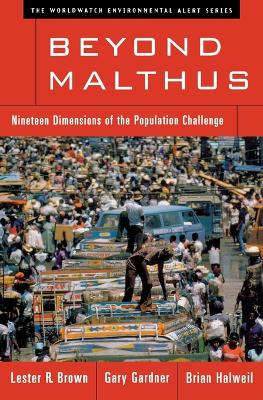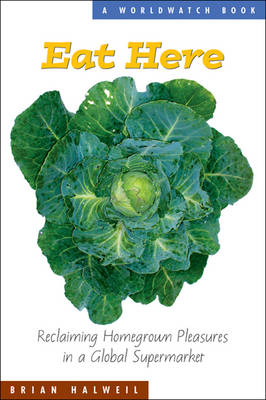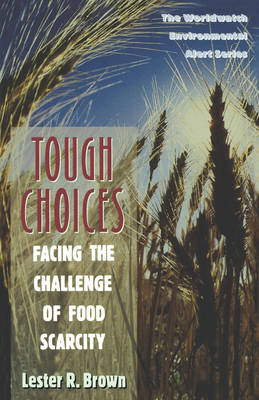The Worldwatch Environmental Alert
2 primary works • 3 total works
Book 0
Human demands are pressing up against more and more of the Earth's limits. This book from the Worldwatch Institute examines the impacts of population growth on global resources and services, including food, fresh water, fisheries, jobs, education, income, and health. Despite the current hype of a "birth dearth" in parts of Europe and Japan, the fact remains that human numbers are projected to increase by over 3 billion by 2050. Rapidly growing nations are likely to outstrip the carrying capacity of their natural support systems. Governments worn down by several decades of rapid population growth often cannot mobilize the resources necessary to cope with emerging threats such as new diseases, food and water shortages, and mass unemployment. Already, in several African nations, hunger, disease, and social disintegration are leading to rising death rates, checking the rapid growth of population. Either nations with surging populations will quickly shift to smaller families or nature will impose its own, less humane limits to growth. As the world enters the new millennium, no challenge is perhaps so urgent as the need to quickly reduce population growth. Pakistan's population is projected to increase from 148 million to 357 million, surpassing that of the United States before 2050. Zimbabwe, Botswana, Zambia, Namibia, and Swaziland, where over one-fifth of the adult population is infected with HIV, will likely reach population stability shortly after the year 2000, as AIDS-related deaths offset soaring birth rates. A Worldwatch Environmental Alert book. Newsmaking press conference on publication National press and television coverage
Book 0
Everyone everywhere depends increasingly on long-distance food. Since 1961 the tonnage of food shipped between nations has grown fourfold. In the United States, food typically travels between 1,500 and 2,500 miles from farm to plate—as much as 25 percent farther than in 1980. For some, the long-distance food system offers unparalleled choice. But it often runs roughshod over local cuisines, varieties, and agriculture, while consuming staggering amounts of fuel, generating greenhouse gases, eroding the pleasures of face-to-face interactions, and compromising food security. Fortunately, the long-distance food habit is beginning to weaken under the influence of a young, but surging, local-foods movement. From peanut-butter makers in Zimbabwe to pork producers in Germany and rooftop gardeners in Vancouver, entrepreneurial farmers, start-up food businesses, restaurants, supermarkets, and concerned consumers are propelling a revolution that can help restore rural areas, enrich poor nations, and return fresh, delicious, and wholesome food to cities.
Published for the World Food Conference to be held in Rome in November, this provocative book assesses the current food scarcity situation and proposes steps that can be taken to expand food production and buy additional time to stabilize population. Part of the Worldwatch Environmental Alert series.


